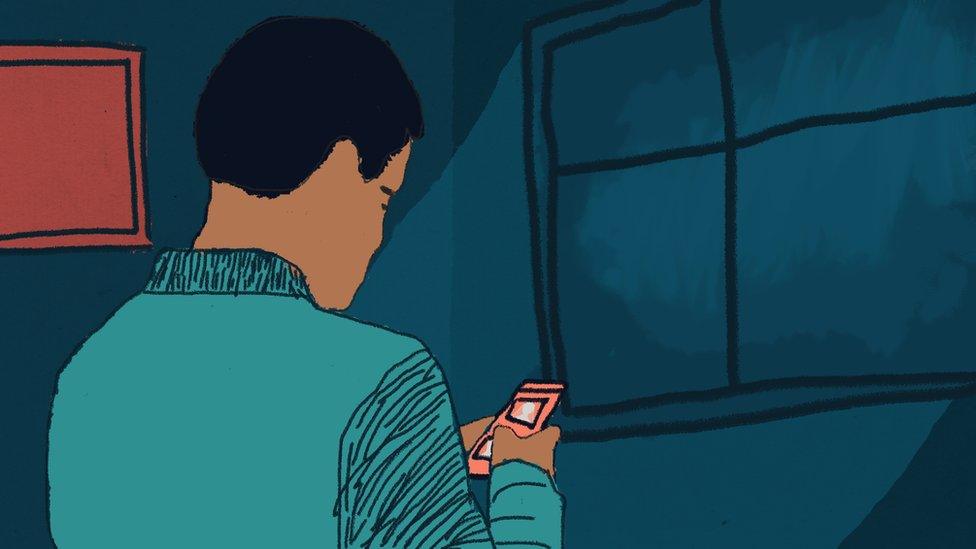Revenge porn law: Norfolk victim of online intimate photos 'distraught'
- Published
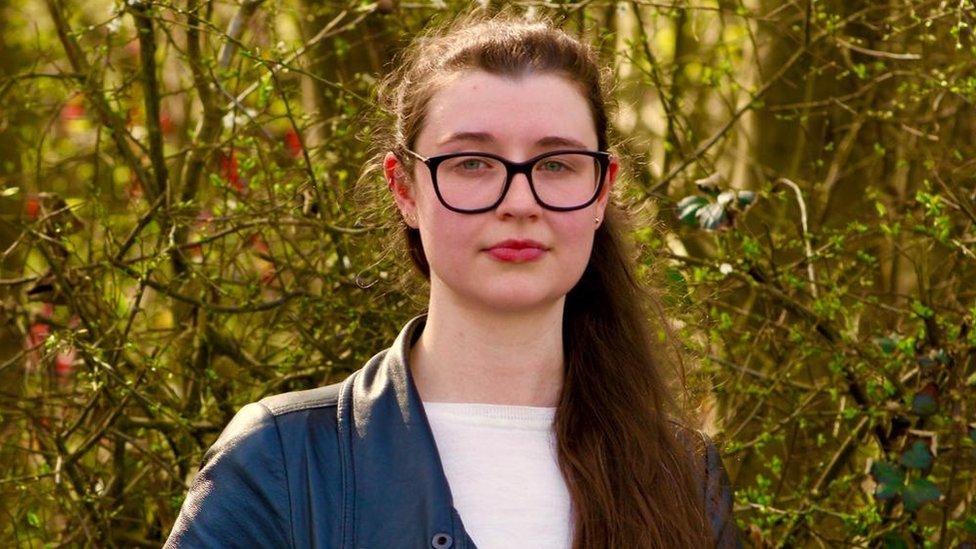
Georgie said she was told what happened to her was not a crime because it was "never meant to hurt me"
A woman who discovered an ex-boyfriend had posted intimate images of her online has spoken of her frustration police were powerless to act.
Georgie, of Norfolk, was contacted by a stranger who had come across "lots" of photos she thought had been deleted years ago.
After contacting police, she learned it was not a crime because her ex-partner claimed he had not meant to hurt her.
"That was so shocking, to be told there was nothing they could do," she said.
The criminal act of taking, making and sharing of intimate images without consent - commonly known as revenge porn, external - is classified as something done with the "purpose of causing embarrassment or distress".
'Deeply unpleasant'
Georgie, who did not want her full name used, said she had been contacted out of the blue.
"It was deeply unpleasant, it was really, really shocking, for something to have come back into my life," she said.
"I was distraught, I didn't know what to do... it was during the first lockdown, so I wasn't easily able to see people... and have someone there to guide me.
"I couldn't even process that someone had committed a crime, that I had to report it to police, that seemed impossible."
Georgie described the experience of reporting the matter to police as "uncomfortable", but said the female officer assigned to her case tried put her at ease.
"It was very intrusive to have to talk to so many strangers about this really unpleasant thing that should have always been intimate and private," she said.
"It was very uncomfortable to have to talk about this over and over again... having to look at these pictures and share them with police."
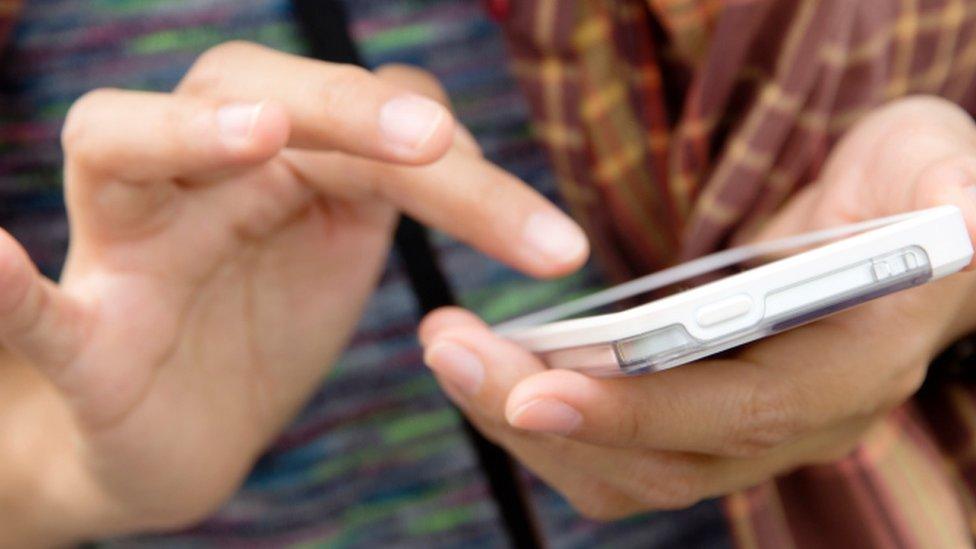
Sharing intimate images without consent is only classified as a crime if it can be proven to be done with the "purpose of causing embarrassment or distress"
Months later she received a single text from her ex-boyfriend, after he had been contacted by officers.
"He admitted to doing it, but it was never meant to hurt me," she said.
His wording was crucial, Georgie discovered.
"That was so shocking to me," she said.
"I'd received what amounted to a confession in written form... to then be told at the end of it all there was still nothing they could do... because he claims it wasn't to hurt me.
"That voids any legislation that is currently available for this kind of experience."

Campaigners want to change the law to eliminate what they feel are "loopholes"
After being made aware that photos of her were in the public domain - and a stranger had seen them - she said: "There is no way of me knowing how much is out there, I will have to deal with that in my future, no matter what.
"Once it's out there, there's no way of putting it back in the box."
She advocates better education in schools about these issues.
"You're taught how not to get pregnant, how not to get an STI [sexually transmitted infection], we're not really taught about consent, and respecting each other," said Georgie.
"That is the thing I feel has been totally lost in my scenario - respect."
'So many loopholes'
Sophie Compton, from the My Image, My Choice, external campaign which wants to change the law on people sharing private images without consent, said Georgie's situation was "very common".
"The laws that we have right now are not working," Ms Compton said.
"There are so many loopholes, but the main issue is that you need to prove that someone intended to cause distress... and it's very hard to prove that.
"There are swathes of victims of this - both men and women - who are not getting any justice.
"Essentially this is about consent. I think it would be very unlikely that someone would find out that their image has been shared without their consent - and not mind about that.
"There's no cultural norm set by the law that says you cannot share somebody's intimate image without their consent."
The Law Commission, which can make recommendations to the government, is currently reviewing the legislation, external.
A government spokesman said: "No-one should have to suffer the distress of these cruel acts, which is why we have already introduced laws on 'revenge porn' and 'upskirting'.
"The Law Commission's review is ongoing, and we will carefully consider their recommendations to make sure our laws keep pace with emerging crimes."
If you or someone you know is struggling with issues raised by this story, find support through the BBC Action Line.

Find BBC News: East of England on Facebook, external, Instagram, external and Twitter, external. If you have a story suggestion email eastofenglandnews@bbc.co.uk, external
Related topics
- Published10 March 2021
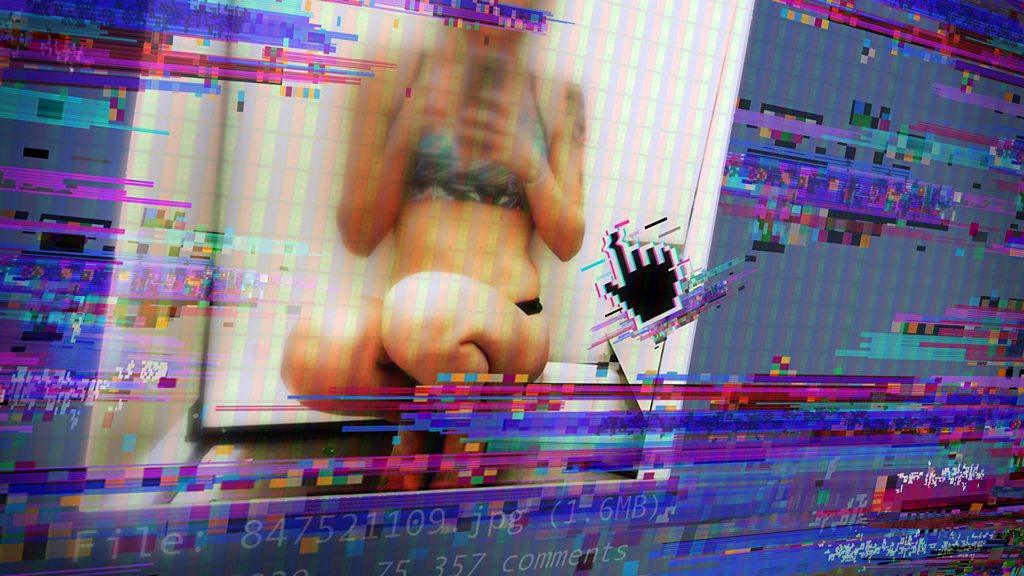
- Published16 February 2021
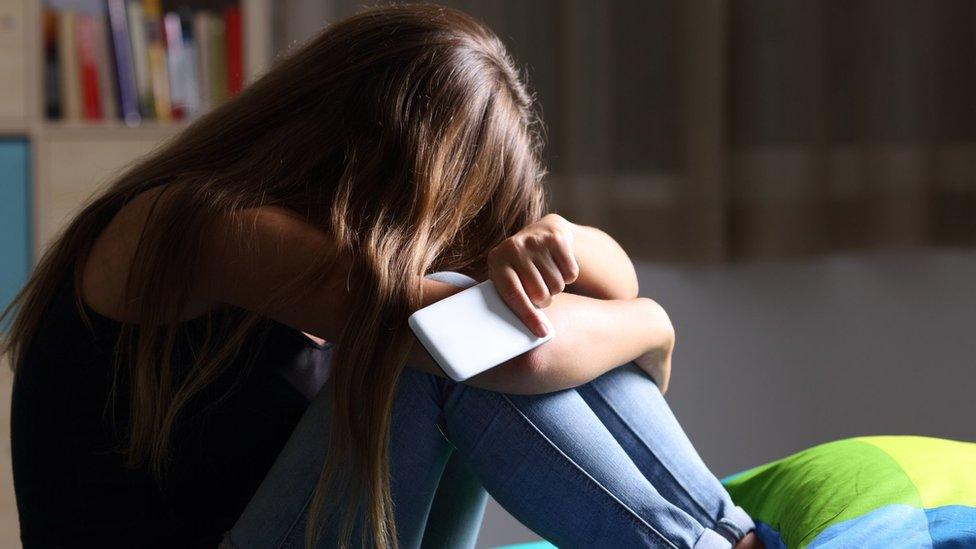
- Published20 November 2020

- Published17 September 2020

- Published25 April 2020
